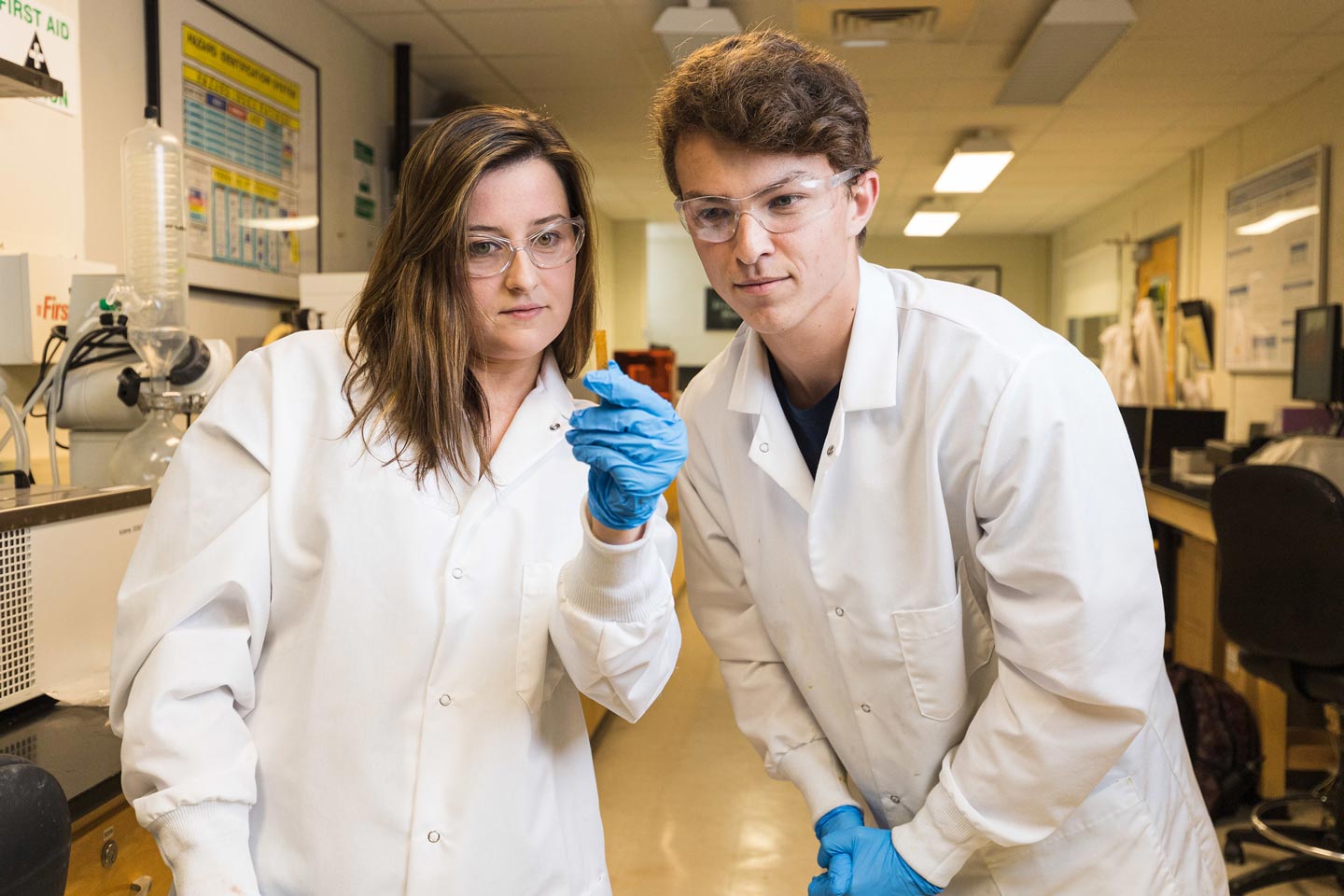Lafayette teams up with Rowan University to seek alternatives to petroleum-based plastics
By Bryan Hay
Melissa Gordon ’11, assistant professor of chemical and biomolecular engineering, and Lindsay Soh, Scott Scholar and associate professor of chemical and biomechanical engineering, and their colleagues at Rowan University have received a National Science Foundation grant to support their research on the green production of bio-based plastic.
Lafayette and Rowan researchers are using green solvents to extract specific chemical building blocks from biomass, purifying and curing them to produce a hard, durable plastic.
“Working on an interdisciplinary team with researchers at Rowan University and Lafayette College, I am excited to develop and evaluate sustainable pathways starting from the green extraction of building blocks to produce bio-based plastics with careful consideration of both function and environmental impact,” Gordon says.
“I am hopeful that this collaborative research, along with the outreach and educational modules developed as part of this work, will help move us toward alternatives to petroleum-based plastics,” she says. “We are very excited and thankful for NSF’s support.”

Prof. Melissa Gordon and Jimmy Hastie ’22 (chemical engineering), an EXCEL Scholar working in her lab, inspect a piece of cured plant-based plastic.
The work helps address the preponderance of petroleum-based plastic, which uses unsustainable practices and creates polymers that often do not fully disappear or degrade by the forces of nature; it just breaks apart into smaller pieces and finds its way into the guts of mammals and fish and into food and water sources.
By designing the polymer starting from building blocks found in nature and using green processing techniques, the research team hypothesizes these plastics would degrade naturally and that the overall environmental impact of polymer production would be minimized.
The team’s initial findings focused on source material derived from tree bark.
“The building blocks derived from tree bark can be transformed into a plastic using a chemical reaction,” says Gordon. “The materials show strong mechanical properties and thermal stability,” properties that are important for plastics. The work was recently published in ACS Sustainable Chemistry and Engineering.
Now with NSF funding, the team will extend its work to evaluate each aspect of the pathway—sourcing of materials and extraction of building blocks to production and recyclability of the resulting plastics, assessing the economics and environmental footprint at each step. The team was drawn to this research because of the growing challenges associated with single-use and disposable plastics.
“It’s also an opportunity to work collaboratively. I enjoy working with and learning from others,” says Gordon, adding that the grant will support Lafayette student researchers. “I look forward to working with students to push this research forward.”
